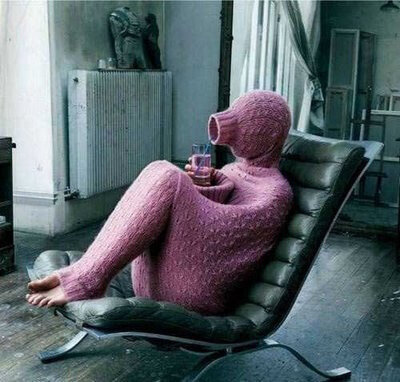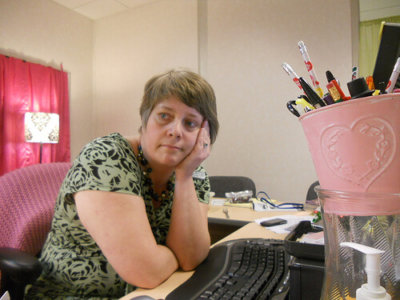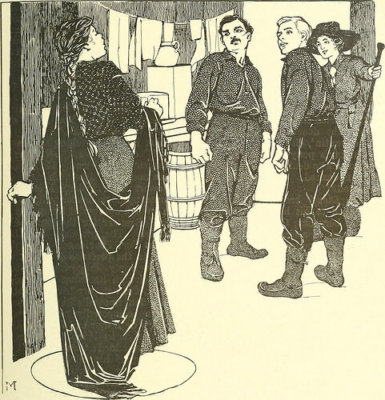What is Social Anxiety Disorder, and Do You Have It?

By: Nguyen Hung Vu
by Andrea M. Darcy
We can all be nervous about social situations from time to time, and many adults are shy around new people.
But social anxiety disorder is actually a type of complex phobia – a condition that has an overwhelming impact on your life.
If you have social anxiety disorder, also known as ‘social phobia’, everyday things, from making a phone call to eating in public, can become something overwhelming.
And you don’t just worry about social situations. You fret about them almost obsessively for days in advance, and can still be analysing what you said or did weeks later. Your anxiety about social things is completely out of proportion, and your thoughts are irrational.
How Common is Social Anxiety Disorder?
Social anxiety disorder is actually a very common psychological issue. The Royal College of Psychiatry estimates that one in twenty people have this disorder, with other sources claiming it can be as high as one in 10.
Although anyone can develop social anxiety disorder, there are more reported cases from women. Children and adolescents can also have the disorder, which can lead to difficulties at school.
Signs of Social Anxiety Disorder
- non stop worried thoughts both before, during, and after social situations
- constantly fear what others think of you and if they’ll criticise you
-
feeling of dread when faced with social situations that can include:
- meeting new people
- public speaking
- using the telephone
- having to eat or drink with people around you
- going out to shops
- talking to people in charge such as bosses and teachers
- having people over to your house
- having to initiate a conversation
- attending classes where you’re asked to participate.
- negative thoughts about yourself, low self-esteem
- tendency to avoid eye contact and might blush easily
- uncertain about where you stand with others or if others really like you
- often panicky and might even suffer panic attacks
- depression which might be due to loneliness
- might use substances to escape your anxiety such as alcohol, drugs, overeating
- fatigue, with all social interaction feeling draining
- other symptoms, some physical, relating to anxiety.
The biggest misunderstanding about social anxiety disorder?
Just because you have social anxiety disorder does not mean you are anxious over every single social situation you face. Anxiety can occur for you only in certain situations, or with certain people.
For example, a student that is okay in most social situations may become crippled with anxiety when asked to give a speech in front of the class. Similarly, an individual that is perfectly fine eating a meal with friends or family may become anxiety-ridden at the prospect of eating in public.
Related mental health conditions to social anxiety disorder
Many people with social anxiety disorder also suffer from panic disorder or panic attacks. It’s also common to have depression due to the loneliness or low self-esteem avoiding social situations can help create. If you turn to stimulants because of your anxiety, you can develop an addiction, alcoholism, or a problem with overeating.
Possible mental health issues you can have in tandem with social anxiety disorder include generalised anxiety disorder and post-traumatic stress disorder (PTSD).
What might a day look like for someone who has social anxiety disorder?

By: rochelle hartman
Your day is plagued with intense worry about what your colleagues are thinking of you – are they judging you? Do they like you, or not? You tell yourself you are being unrealistic, that it doesn’t matter what others think, but it doesn’t help. The worries don’t stop. You even start to then fear that you are going to do or say something wrong, sound stupid, or embarrass yourself front of others.
With enough of these thoughts racing around your head, and knowing you have to do a presentation that afternoon, you find you suffer a feeling of dread and hide in the office supply closet having a panic attack complete with sweating, heart palpitations, and trembling.
The presentation goes okay, and your colleagues ask you out for a celebratory drink, and you go, but feel like everything you say is the wrong thing and that they are just being nice to you but don’t really like you. So after just one drink you find yourself rushing home to be by yourself but this leads to you feeling quite lonely, and by the end of the day you might even feel a bit depressed, or having a few too many drinks more by yourself to try to avoid your sense of failure and isolation. If only you could be like everyone else, you think to yourself….
You promise yourself that tomorrow you will stop being so worried about what others think. But then the next day, on the bus going to work, a man stares at you, and you are sure he is judging you, and the thoughts and feelings begin over again…
Causes of Social Anxiety Disorder
Social anxiety disorder, like many mental health conditions, is thought to be caused by a combination of genetic and environmental factors. In other words, it’s more likely you’ll develop social anxiety disorder if one of your parents had it, and if you were raised in a certain way that made you a nervous, under confident child. Social anxiety disorder is especially linked to a childhood where your parents or guardians were always criticising you, putting you on edge that you might do something wrong, overprotective, unaffectionate, and/or perfectionistic about such things as your manners and self-presentation.
How is it Social Anxiety Disorder Diagnosed?
Like most mental health conditions, a diagnosis of social anxiety disorder is made by a doctor on the basis of an inventory of both your present day issues and your life history. Part of your diagnosis will involve one or several anxiety questionnaires.
A diagnosis will not be made randomly – mental health professionals must refer to the accepted health manual and guidelines of the country you reside in. In the UK, mental healthcare professionals use the guidelines for social anxiety disorder set forth by the National Institute for Health and Care Excellence (NICE). They might also refer to the International Statistical Classification of Diseases and Related Health Problems (ICD-10).
In the United States, practitioners rely instead on the Diagnostic and Statistical Manual of the Mental Disorders (DSM-V) to make their diagnosis.
How is it Social Anxiety Disorder Treated?
Treatment for social anxiety disorder can be troublesome because the thought of working in a one-on-one situation with a therapist causes many people with the disorder to experience great distress. So the first hurdle of treating the social phobia is simply seeking help at all.
On a good note, if you do find support, social anxiety disorder is highly treatable.
For some sufferers of this disorder, medication is highly helpful, such as beta-blockers or antidepressants. The best result, however, if using medication, is to use it in conjunction with psychotherapy, as while medication can help lower anxiety it cannot by itself address your underlying fears and psychological issues that led to the disorder to begin with.
Cognitive behavioural therapy (CBT) is among the most popular psychotherapy for social anxiety disorder. CBT addresses your underlying ways of thinking that trigger anxiety. A CBT therapist works with you to identify negative thought patterns, false ideas, and unrealistic behaviours that cause anxiety.
Self-help programmes are often also offered to help social anxiety disorder and can indeed by the first choice of treatment for sufferers (you can be referred to such programs by the NHS). Usually in the form of a computer programme or workbook, these therapies help guide you to build skills and change thought patterns so that your anxiety is minimised. It can be the step you need to then feel more comfortable working more in depth and one-on-one with a psychotherapist.
Well-Known PeopleWith Social Anxiety Disorder
Many world-famous celebrities have struggled with social anxiety disorder at some point in their lives. Marilyn Monroe struggled with both anxiety and depression, and Brian Wilson of the famous American band, The Beach Boys, is also reported to have suffered. Likely the most famous celebrity today to deal with social anxiety is actor Johnny Depp, often photographed hiding behind sunglasses, who has employed a team of therapists that help him to overcome his anxieties so he can then continue with duties as an actor.
Do you have a question about social anxiety we haven’t answered? Ask below.







Hi, this article was very helpful and i think that i might be having social anxiety disorder. i was never a happy child, and mostly kept to myself and my unhappiness had no reasons as well. i was loved by my family and as i was the youngest of my siblings, i got lots of love. but growing up i had become somewhat more confident and was not as uncomfortable in social situations although it was not even the most comfortable one, but later i was told by many classmates and colleagues that i dont look good, and also for the fact of never getting a girlfriend has reduced my confidence level a lot and although i would like to meet people and get a girlfriend, having told by many people (including my own sister, who certainly loves me) it makes me very uncomfortable in social situations and i avoid them.
i am extremely lonely, and i dont know what to do. i have approached girls and have been rejected, not sure if it is for my lack of confidence or that i dont talk a lot or my face.
Hi Ryan, it does sound lonely. We can’t tell you if you have social anxiety disorder over the internet or based on a comment, you’d need to go for a proper, very thorough assessment with a psychiatrist or at least talk to a therapist. It’s just as possible you are just suffering from low self-esteem and anxiety. As for being unhappy as a child, it seems you have made your childhood ‘perfect’. You might find in therapy there were indeed things that upset you. You have to understand that our childhood brain processes things differently than our adult brain. Something like a parent favoriting a sibling, for example, can seem no big deal to our adult brains. But to a child it can be devastating. In any case, would you consider seeking some support from a counsellor or psychotherapist? He or she could not only help you with your esteem, but also help you with find coping strategies for social situations. Do give it a think. As for your struggles with feeling judged on your looks, we do live in a very shallow society at the moment and it can be overwhelming for a lot of us if we don’t measure up to some apparent standard (which changes every decade or so, showing how really it’s all just opinion). But we do believe that when we work on feeling good about ourselves it does seem to change the way others behave around us. The most beautiful person in a room will have nobody talking to them if they are insecure and mean to others, for example. If we learn to be ourselves, and if we learn to feel compassion for ourselves, it does seem to mean that others respond better to us no matter what. And do we really need everyone around us to like us? Or just a handful of people who see us for who we are? We believe you can find those people. They are out there. We wish you courage!
Can repressed emotions come with this disorder?
HI Alyssa, repressed emotions come with most– or, one could debate, all– psychological issues. We have psychological issues because we are repressing difficult experiences and the emotions that those experiences created. Social anxiety, for example, can be a side effect of childhood trauma. We end up with the belief that the world is a dangerous place, and that nobody can truly like us. So of course we want to hide away. So repressed emotions are not a major symptom or major cause of the anxiety, but we’d certainly have some things we’d repressed from the experience of being traumatised, unless we’d been to therapy to sort them out.
How is social anxiety disorder different from shyness?
Some people with extreme shyness have social anxiety, others don’t. Just because you are shy and don’t like to talk or be the centre of attention doesn’t mean you don’t like social situations like parties, etc. Some shy people love parties, they just want to be in the corner watching it all go down, that’s all. Shyness also doesn’t mean you don’t like spending time with people you like in smaller groups. You can in fact be an extrovert and shy. An extrovert simply means you see the world and connect to it through the lens of what is around you instead of what is inside you, your feelings and thoughts. And you can be shy and still very bubbly and loud around those you trust. Social anxiety, on the other hand, means most if not all social settings make you very nervous. Walking into a restaurant, for example, can feel terrifying, and even if you are with people you like you can feel anxious about saying the wrong thing. We have an article on shyness that addresses this https://www.harleytherapy.co.uk/counselling/shyness-in-adults.htm